STD Department Introduction
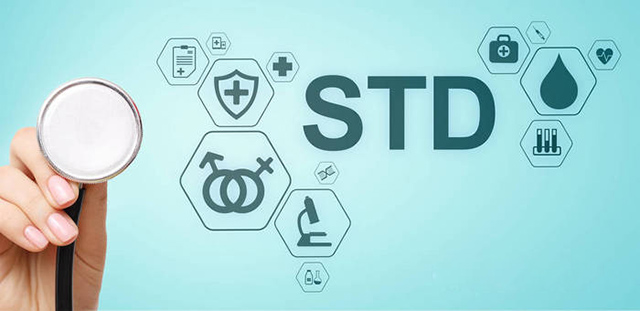
STD Testing
Play It Safe: Get Tested for an STI or STD
Signs and symptoms
The CDC estimates that over 20 million people are diagnosed with a sexually transmitted disease or infection every year. STDs spread so quickly because sexually active adults do not test frequently enough and often don’t even know they have an infection. Most STDs are preventable and treatable if caught early, which only happens with frequent testing. STDs can affect anyone, no matter your age, race, or gender. The best defense is frequent testing and early treatment.
Why Choose Us ?
STD testing doesn’t need to be awkward or uncomfortable.makes it discreet and stress-free. Our facilities provide accurate and confidential testing to help you make informed decisions about your health. We always accommodate clients discreetly and care deeply about their privacy.
The most common STDs include:
- HPV (Human Papillomavirus)
- Herpes
- Gonorrhea
- Chlamydia
- Syphilis
Trichomoniasis can help you better understand your health and make more informed decisions about your future. Our testing labs are clean, confidential, and return results quickly. There will also be a follow-up from providers when critical values return, and we’ll connect you with resources to get treatment. The results are always completely confidential and will not be reported to anyone, except when legally required.
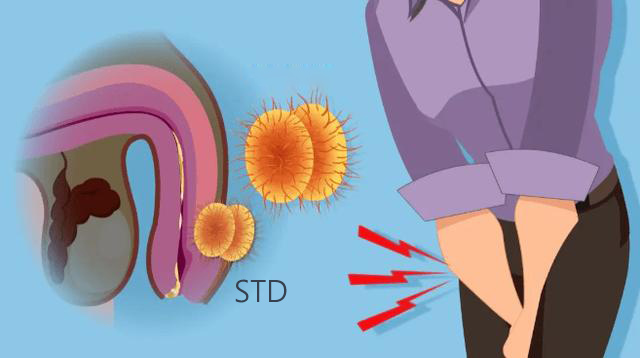
HPV (Human Papillomavirus)
The Human Papillomavirus, commonly referred to as HPV, is the most common sexually transmitted disease. In addition to being extremely common, HPV is also virtually symptom-free, making the HPV test very important. Using an advanced DNA test, can provide female patients with a positive or negative diagnosis.
Chlamydia
Chlamydia is a bacterial STD and is easily spread due to the typical lack of physical symptoms in the early stages. Untreated, it can lead to serious medical issues including permanent damage to the reproductive system. A simple urine test is used to diagnose chlamydia, which is easily treated with antibiotics.
Gonorrhea
Gonorrhea, a bacterial STD, may or may not lead to physical symptoms. However, it can cause medical problems if undiagnosed, such as rashes, fever, and severe issues in infants (via childbirth). Using a small urine sample, a medical professional can quickly and accurately diagnose gonorrhea.
Syphilis
Syphilis is highly contagious and potentially life-altering but is also easily treatable if diagnosed early on. Most commonly, a blood test is the chosen method for detecting a syphilis infection.
Herpes
Herpes is a viral STD with numerous strains and can be transmitted through various forms of contact. The herpes blood test is highly effective, regardless of symptoms, providing an accuracy rate of about 99 percent.
How Accurate Are STD Tests?
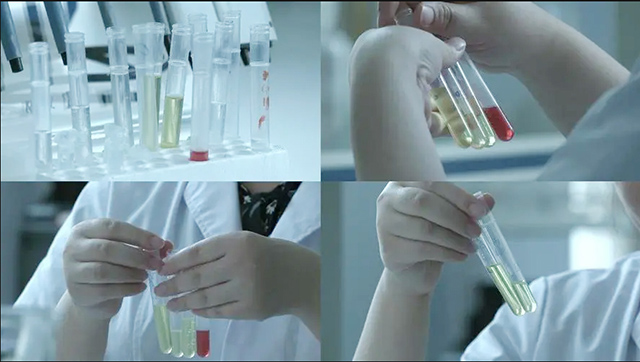
Properly conducted laboratory STD tests are very accurate. Although no test can be 100% accurate, many different tests are 90-95% accurate for sensitivity (true positives) and specificity (true negatives). Because at-home STD tests cannot offer the same level of accuracy and reliability, we recommend visiting a lab for testing of this nature.
Trichomoniasis
Trichomoniasis is among the most common curable STDs, often causing itching, general discomfort, and irritation. A urine sample is the easiest method for testing for trichomoniasis and is nearly always required for a confirmed diagnosis.
What causes sexually transmitted diseases (STDs)?
STDs can be caused by bacteria, viruses, and parasites.
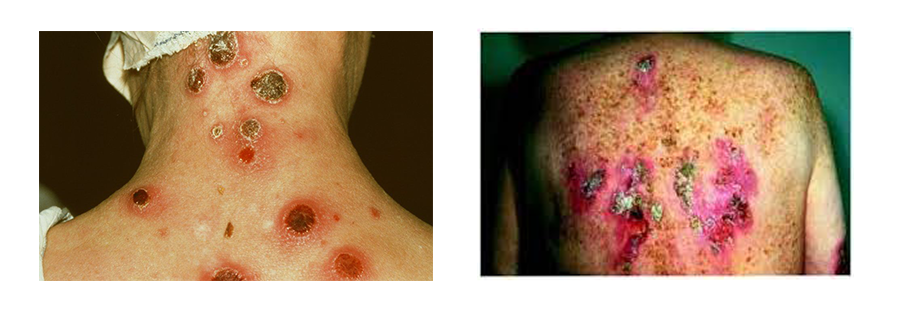
Who is affected by sexually transmitted diseases (STDs) ?
Most STDs affect both men and women, but in many cases the health problems they cause can be more severe for women.If an STD is passed to a baby, it can cause serious health problems.
What are the symptoms of sexually transmitted diseases (STDs)?
STDs don’t always cause symptoms or may only cause mild symptoms. So it is possible to have an infection and not know it. And even without symptoms, STDs can still be harmful and may be passed on during sex.
If there are symptoms, they could include:
- Unusual discharge from the penis or vagina
- Sores or warts on the genital area
- Painful or frequent urination (peeing)
- Itching and redness in the genital area
- Blisters or sores in or around the mouth
- Abnormal vaginal odor
- Anal itching, soreness, or bleeding
- Abdominal pain
- Fever
How are sexually transmitted diseases (STDs) diagnosed?
If you are sexually active, you should talk to your health care provider about your risk for STDs (here we are to give to best medication) and whether you need to be tested. This is especially important since many STDs do not usually cause symptoms.
Some STDs may be diagnosed during a physical exam or through microscopic examination of a sore or fluid swabbed from the vagina, penis, or anus. Blood tests can diagnose other types of STDs.
What is a sexually transmitted infection (sexually transmitted disease)?
Sexually transmitted infections (STI) are infections or conditions that you can get from any kind of sexual activity involving your mouth, anus, vagina or penis. Another common name for STIs is sexually transmitted diseases, or STDs. There are several types of STIs. The most common symptoms are burning, itching or discharge in your genital area. Some STIs are asymptomatic, meaning you may not have any symptoms.
Sexually transmitted infections are highly contagious. If you’re sexually active, you can have (and pass on) an STI without even knowing it. The Centers for Disease Control and Prevention (CDC) recommends regular STI screenings or testing if you’re sexually active.
STIs are serious illnesses that need treatment. Some, like the human immunodeficiency virus (HIV), have no cure and can be life-threatening without treatment.
What is the difference between a sexually transmitted infection and a sexually transmitted disease?
A sexually transmitted infection is the same as a sexually transmitted disease. STI is the most accurate term to describe the condition.
How common are sexually transmitted infections?
Sexually transmitted infections are common. More than 25 million sexually transmitted infections occur each year in the United States. Around the world, an estimated 374 million sexually transmitted infections occur each year. According to the CDC, there were approximately 2.5 million cases of chlamydia, gonorrhea and syphilis in the U.S. in 2021. About half of these cases occur in people ages 15 to 24.
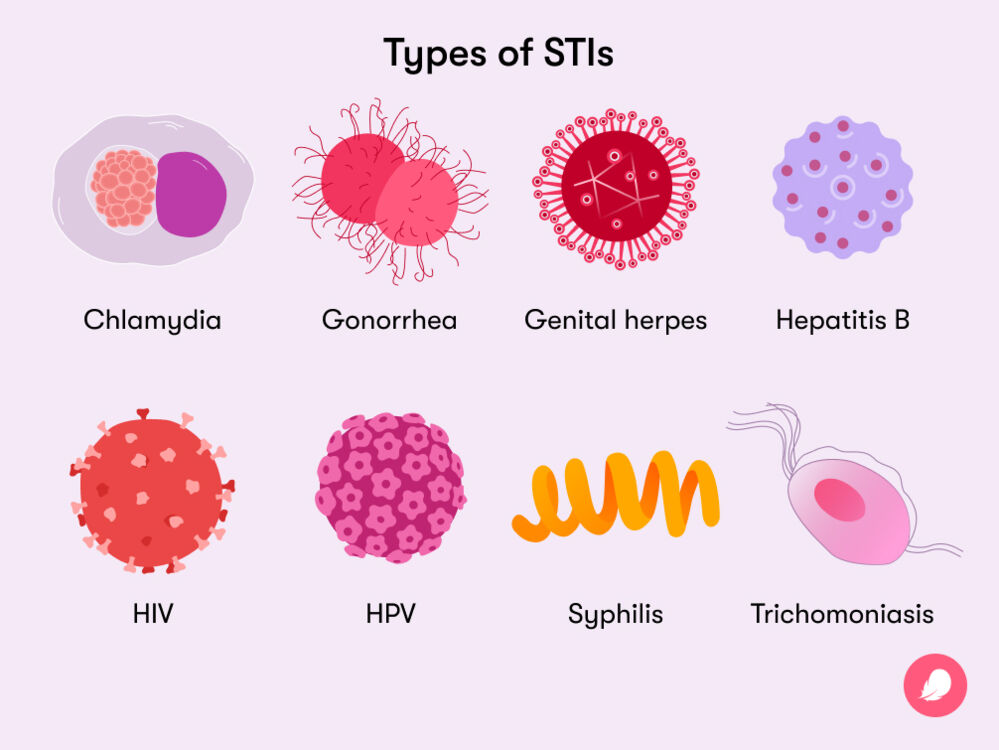
SYMPTOMS AND CAUSES
What are the symptoms of sexually transmitted infections?
Symptoms of sexually transmitted infections (sexually transmitted diseases) vary by type. You might not have any symptoms. If you do have symptoms, they may appear around your genital region and could include:
- Bumps, sores or warts on or near your penis, vagina, mouth or anus.
- Swelling or severe itching near your penis or vagina.
- Discharge from your penis.
- Vaginal discharge that has a bad odor, causes irritation or is a different color or amount than usual.
- Vaginal bleeding that’s not your period.
- Painful sex.
- Painful urination or frequent urination.
In addition, you may also have symptoms throughout your body, including:
- A skin rash.
- Weight loss.
- Diarrhea.
- Night sweats.
- Aches, pains, fever and chills.
- Jaundice (yellowing of your skin and whites of your eyes).
What causes sexually transmitted infections?
Sexually transmitted infections develop when various bacteria, viruses or parasites infect your body. You can get these microorganisms from bodily fluids (like blood, urine, semen, saliva and other mucous-lined areas) during sex usually vaginal, oral and anal sex or other sexual activities.
Are sexually transmitted infections contagious?
Yes, sexually transmitted infections (sexually transmitted diseases) are contagious. Most STIs pass from person to person by sexual contact through bodily fluids or from skin-to-skin contact by touching the infected part of a person’s body, usually the genitals. Some STIs, like syphilis, can spread while giving birth to a baby.
If you have an STI, it’s important to visit a healthcare provider to receive treatment. Some STIs are curable. You can prevent the spread of STIs by getting tested regularly if you’re sexually active, talking to your sexual partners about your diagnosis and using protection during sex.
What are the risk factors for sexually transmitted infections?
If you’re sexually active, you’re at risk of developing a sexually transmitted infection (sexually transmitted disease).
You can also get an STI if you share personal items like needles that contain your blood. This may occur in the following instances:
- Unregulated tattoos.
- Unregulated piercings.
- Sharing needles while using intravenous drugs (substance use disorder).
A lack of communication due to stigma or shame about having an STI can put you and your partner(s) at a greater risk of spreading the infection. Before having sex, you should ask your partners the following questions:
- Do you have an active STI?
- When was your last STI test?
- Are you currently being treated for an STI?
- Do you consistently use protection with your sexual partners?
Asking these questions can help you protect yourself.
It’s common to feel strong emotions after an STI diagnosis. You might want to avoid telling your sexual partner because you feel embarrassed. Being open and honest with your sexual partners helps build trust and understanding. If you have an STI, you can reduce the risk of spreading the infection to your sexual partner(s) by talking it over with them before engaging in sexual activities.
What are the complications of sexually transmitted infections?
Sexually transmitted infections can cause lifelong complications if left untreated. Common complications from untreated STIs include the following:
- HIV can lead to AIDS.
- Syphilis can damage your organs, nervous system and infect a developing fetus.
- Risk of spreading STIs to your sexual partners.
STI complications for women or people assigned female at birth (AFAB) include:
- Pelvic inflammatory disease (PID), which can damage your uterus and cause infertility.
- Ectopic pregnancy.
- Infertility.
- Chronic pelvic pain.
In men or people assigned male at birth (AMAB), untreated STIs can lead to:
- Infections in the urethra and prostate.
- Swollen, sore testicles.
- Infertility.
DIAGNOSIS AND TESTS
How are sexually transmitted infections diagnosed?
A healthcare provider will diagnose a sexually transmitted infection (sexually transmitted disease) after a physical exam and testing. Your provider will ask about your symptoms and your medical and sexual history — answer honestly, so you can get the help you need. After a positive STI diagnosis, you need to notify your sexual partner(s) that they should also get tested. This can be a very emotional process, but telling your partners can help them get the care they need and prevent the spread of the infection.
What is STI testing?
A sexually transmitted infection test is a medical test to determine if you have an STI. A healthcare provider will review your symptoms and offer a test or tests to determine the cause. There are different tests for each type of STI. Your provider will talk to you about what test(s) you need. STI testing could include:
- Urine test.
- Cheek swab.
- Blood test.
- A fluid sample from skin sores.
- A discharge or cell sample from your body (usually the vagina, urethra, cervix, penis, anus or throat).
STI testing is mostly painless. You might feel a small pinch during a blood test or a sting from a swab touching a sore.
How often should I get tested for STIs?
Most healthcare providers recommend annual sexually transmitted infection testing. You may choose to get tested more often, like every 3 to 6 months, if you have multiple sexual partners. Some providers recommend testing before having sex with a new partner. Regular testing helps find and treat STIs you may not even know you have. Talk to a healthcare provider about a testing schedule that makes sense for you.
MANAGEMENT AND TREATMENT
How are sexually transmitted infections treated?
The goal of sexually transmitted infection (sexually transmitted disease) treatment is to:
- Cure many (not all) STIs.
- Lessen your symptoms.
- Reduce your likelihood of spreading the infection.
- Help you get healthy and stay healthy.
Treatment for STIs could include taking medications like:
You can take these medicines orally (by mouth), or a provider will give you an injection.
Should I get the HPV vaccine?
The human papillomavirus (HPV) is the most common viral STI in the U.S. People with HPV may have no symptoms, or they may develop warts or bumps around the genitals. High-risk HPV can even cause cervical cancer.
There’s a vaccine to prevent HPV and genital warts. Healthcare providers advise children ages 11 to 12 to receive it because it’s most effective before you become sexually active. Providers recommend the vaccine for everyone up to age 26, and updated information shows people up to the age of 45 years may benefit from the HPV vaccine. Talk to your healthcare provider to see if it’s right for you.
What is expedited partner therapy?
Expedited partner therapy (EPT) is where your healthcare provider gives you a prescription for your partner without examining them when you’re diagnosed with chlamydia or gonorrhea. Typically, the healthcare provider would wait to examine your partner before providing a prescription. But the logical assumption is that if you have one of these STIs, then your partner probably does, as well. This prevents reinfection and stops additional transmission as soon as possible.
How soon after treatment will I feel better?
If your provider gave you antibiotics or antivirals to treat a sexually transmitted infection, you should start feeling better within a few days. Make sure to complete all the medicine as directed, even if you’re feeling better. And never share medicines — don’t give your medicine to others, and don’t take someone else’s medication for your symptoms.
PREVENTION
There are steps you can take to protect yourself and your partner from sexually transmitted infections.
How can I lower my risk of developing a sexually transmitted infection?
The only way to reduce the risk of sexually transmitted infections is to abstain from sex (not have sex). If you’re sexually active, you can:
- Use a latex condom whenever you have any kind of sex. If you or your partner has a vagina, use a dental dam for oral sex.
- Choose sex partners carefully. Don’t have sex if you suspect your partner has an STI.
- Get checked for STIs regularly. Doing so helps prevent the spread of STIs to other people. Ask any new sex partner to get tested before having sex for the first time.
- Avoid alcohol or drugs before having sex. People who are under the influence may engage in sexual activities without taking safety precautions.
- Learn the signs and symptoms of STIs. If you notice symptoms, visit a healthcare provider quickly.
- Educate yourself about STIs. The more you know, the better you can protect yourself and your partners.
Can the spread of sexually transmitted infections be prevented?
You can take steps to protect yourself and others from sexually transmitted infections:
- If you have symptoms of an STI, don’t have sex until you see a healthcare provider and receive treatment. You can resume sex when your healthcare provider says it’s OK.
- Follow your healthcare provider’s instructions for treatment.
- Return to your healthcare provider to get rechecked after completing treatment.
- Be sure your partner(s) know about your positive diagnosis and also receive treatment.
- Use condoms whenever you have sex, especially with new partners.
- Get vaccinated for certain STIs (HPV) to prevent complications.
OUTLOOK / PROGNOSIS
What can I expect if I have a sexually transmitted infection?
Most STIs go away after treatment. Some may require lifelong management with medications. You can develop the same STI after it goes away if you get infected with it again.
People who get an STI diagnosis may feel embarrassed or ashamed. But STIs can happen to anyone — millions of people have them. Statistics show that most people will get an STI at least once. If you’re experiencing anxiety or stress about your STI diagnosis, consider reaching out to a friend, loved one or mental health professional for support.
What if I have an STI and I’m pregnant?
If you’re pregnant and have an STI, talk to your healthcare provider right away. They’ll discuss treatment options to keep you and the fetus safe.
What’s the outlook for sexually transmitted infections?
Many sexually transmitted infections (sexually transmitted diseases) can be cured. Unfortunately, there isn’t a cure for all STIs. Conditions like HIV require lifelong care and treatment. You can get an STI again, even after treatment to cure it.
LIVING WITH
How do I take care of myself if I have a sexually transmitted infection?
If your healthcare provider gave you a sexually transmitted infection diagnosis, take steps to keep yourself healthy:
- Take all of the medication your provider prescribed as instructed.
- Don’t have sex while you’re getting STI treatment. Wait until your healthcare provider gives you the all-clear.
- Let your sexual partners know you have an STI so that they can talk to their healthcare provider about testing and treatment.
- When you resume having sex, use a condom. If you or your partner has a vagina, be sure to use a dental dam while having oral sex.
When should I see a healthcare provider?
Visit a healthcare provider if you notice that you or your partner has symptoms of an STI. You should also regularly visit a healthcare provider for annual or more frequent STI testing if you’re sexually active.
What questions should I ask my doctor?
If you’re sexually active or you’ve had an STI, ask your healthcare provider:
- How can I prevent STIs?
- Will the STI cause any complications or problems in the future?
- Should I get checked regularly for STIs?
- Should my partners get checked?
- What type of treatment do I need?
- When will the STI go away?
- Are there side effects of the treatment?
